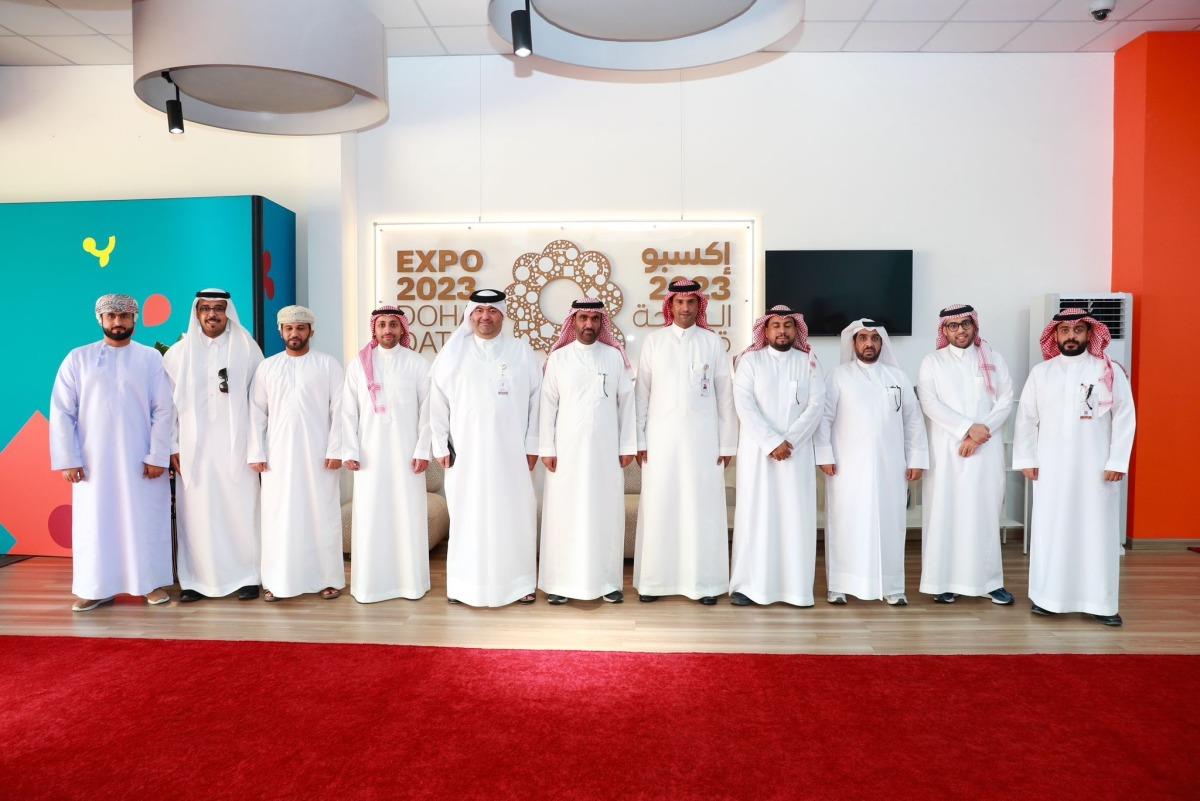
Ministry Of Environment Reviews Efforts To Conserve Wildlife
Doha, Qatar: The Ministry of Environment and Climate Change (MoECC) has held a workshop on the national efforts to preserve wildlife in collaboration with GCC General-Secretariat at the International Horticultural Expo 2023 Doha.
The workshop was organised to mark the GCC Wildlife Day which is held this year under the motto of balancing life in harmony with nature and protection.
The event addressed the efforts of Qatar in environment, wildlife, and biodiversity, in addition to its role in protecting local endangered species and their breeding through enacting laws and legislations that help provide a healthy environment for all population of the State of Qatar, reduce pollution, conserve the environment, and preserve its natural equilibrium and biodiversity.
In his inaugural remarks before the workshop, Director of Wildlife Development Department at MoECC Mohamed Ahmed Al Khanji said that the environmental development, conservation and protection of environment and biodiversity are one of the core pillars of Qatar National Vision 2030.
He noted that the first national development strategy and the third national development strategy have been prepared to execute this vision in order to protect the environment and wildlife and ensure sustainability.
Qatar has a unique biodiversity that includes a substantial number of aquatic and terrestrial species and had issued an array of environmental laws and legislations to preserve this diversity, Al Khanji pointed out, noting the programmes and projects that helped preserve and protect wildlife and biodiversity, chief amongst which were the lizard biodiversity conservation project which monitored 21 of lizard species, as well as programs of breeding of endangered animals, such as Arabian oryx, sand gazelle, ostrich, bustard, and wild rabbit.
He added that MoECC has released a substantial number of Al Reem deer in the open natural reserves since 2002, in addition to releasing the Arabian oryx in Al Reem Biosphere Reserve.
Al Khanji underscored the efforts made by MoECC in the sea turtle protection project at all Qatar's coasts since 2002 which is carried out annually, in addition to studying the impact of the decision to ban camel grazing on natural vegetation.
He emphasised that Qatar has made distinguished efforts to propagate the Mangrove plant nationwide since 1982 and carried out a project to study the conglomeration of Mangrove at the coasts. Based on the aforementioned study, Qatar has set an action plan to propagate the Mangrove in new areas.
Al Khanji reviewed the ministry's efforts in preserving biodiversity through monitoring the movements of whale sharks in their natural habitats, as well as a program for monitoring dugongs movements, the program for rehabilitating the Qatari mainland and propagate local plants in the meadows and plant environments, in addition to establishing the biodiversity database project in cooperation with the United Nations Environment Programme (UNEP), and Arabian Oryx Genome project.
He highlight the development of a veterinary laboratory for wild animals, evaluating development projects and infrastructure such as roads, water and sewage networks, taking the necessary measures to reduce negative impacts on wildlife and promoting environmental sustainability, a proactive plan to monitor invasive species such as hawk, the Indian myna and the Indian crow, as well as the national program for the rehabilitation of ecosystems, coastal areas in Qatar and their conservation in cooperation with Earthna Center and Qatar University.
MoECC organised numerous events to propagate the culture of environment sustainability among the community and promote the awareness on the significance of preserving the wildlife and local environment, he pointed out, adding that such events included Qatar Whale Shark Conservation Forum 2023, animal wildlife forum organized under the theme of wild hunting, a hobby and sustainable protection for environment, as well as the plant and wildlife forum 2023.
Regarding the natural reserves, Al Khanji elucidated that Qatar exerts intensive efforts to protect all endangered species through establishing and expanding natural reserves, adding that such reserves are characterised by their biodiversity, along with their rare animals and plants, in addition to Coral reefs that abound with unique marine species.
The expansion of these natural reserves helped achieve tremendous successes in conserving endangered species, Al Khanji affirmed, pointing out that Qatar embraces 11 natural reserves constituting 29 percent of the total area of the state, with marine reserves representing about 2 percent of marine and coastal areas.
He noted that Al Reem Reserve was approved as a biosphere reserve by Unesco in 2007, as it was included in the global network of biosphere reserves as the first of its kind, commending the efforts made by the General-Secretariat of GCC in dedicating the GCC Wildlife Day which coincides with Dec. 30 each year, along with its role in preserving the life and harmony with the nature.

Legal Disclaimer:
MENAFN provides the
information “as is” without warranty of any kind. We do not accept
any responsibility or liability for the accuracy, content, images,
videos, licenses, completeness, legality, or reliability of the information
contained in this article. If you have any complaints or copyright
issues related to this article, kindly contact the provider above.


















Comments
No comment